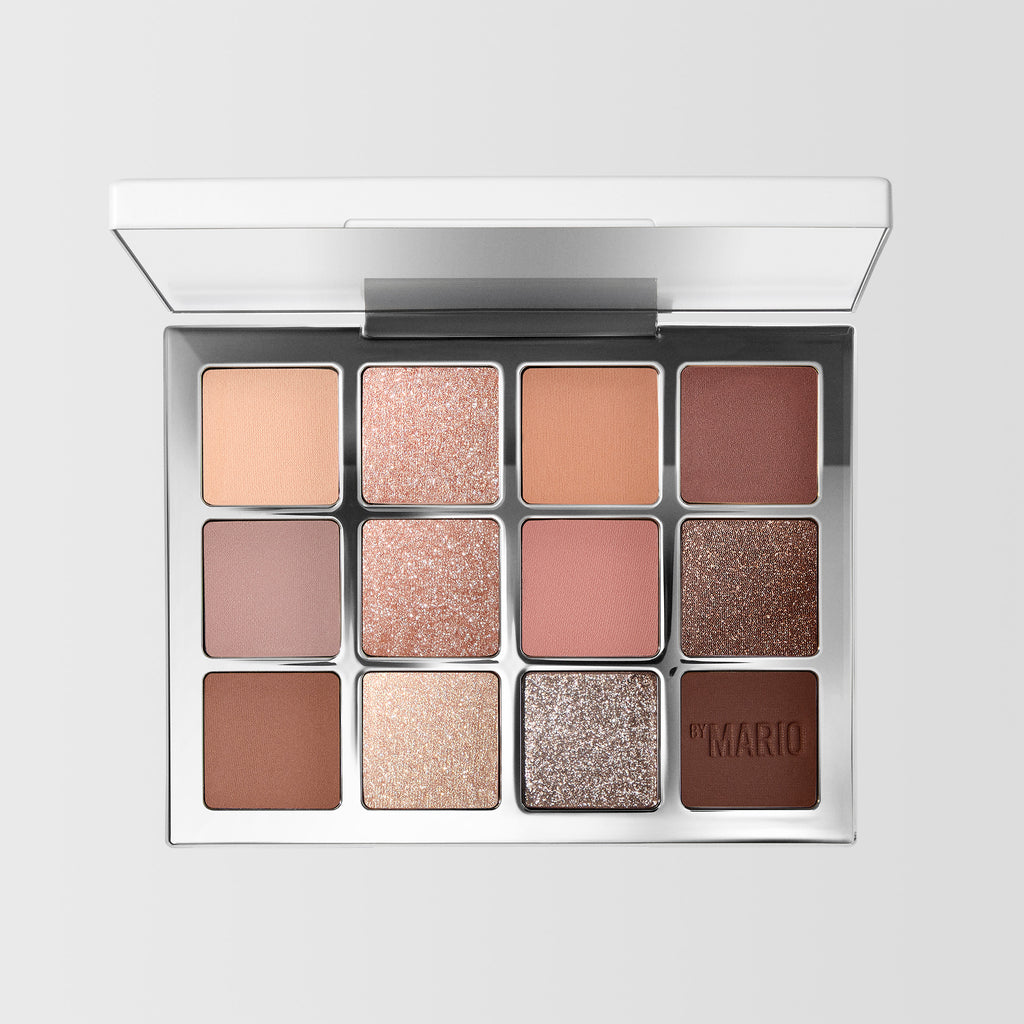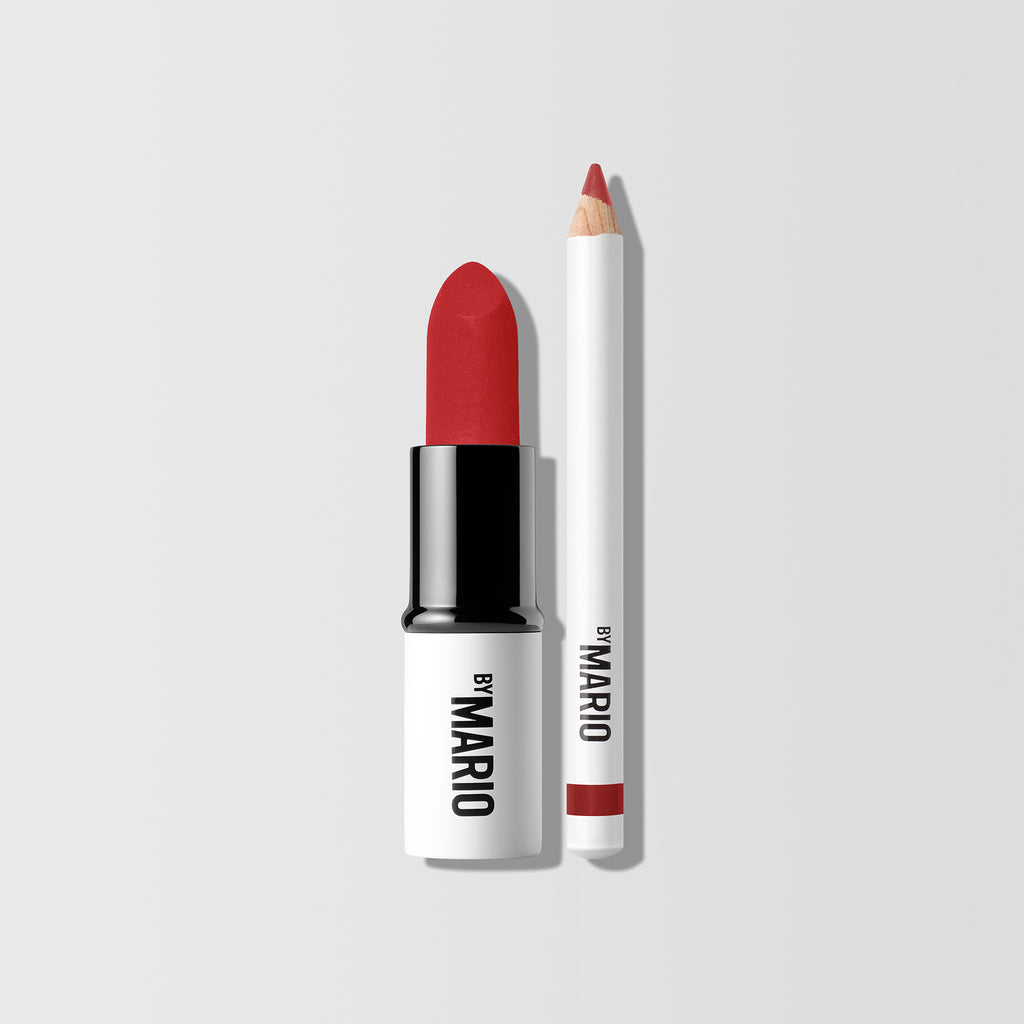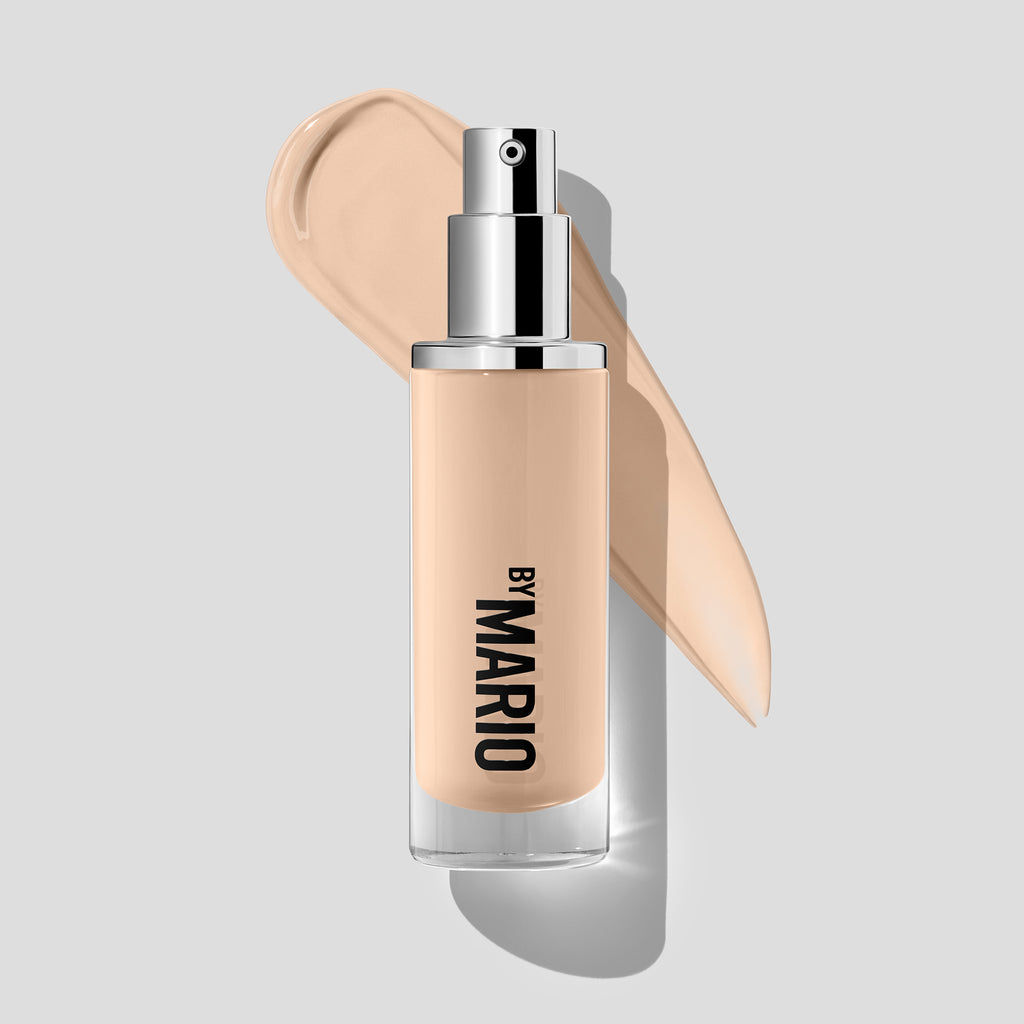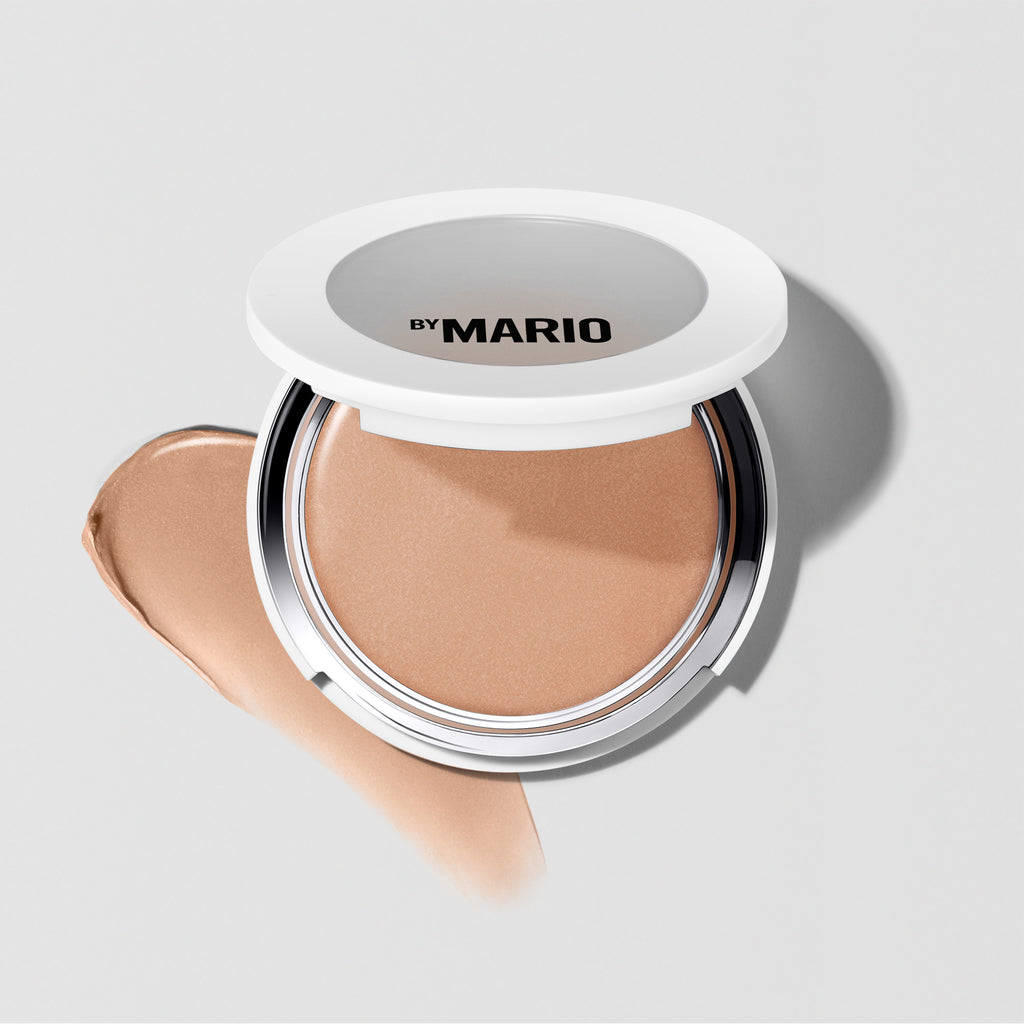How Mario Dedivanovic Went From Working at Sephora to Launching His Beauty Line
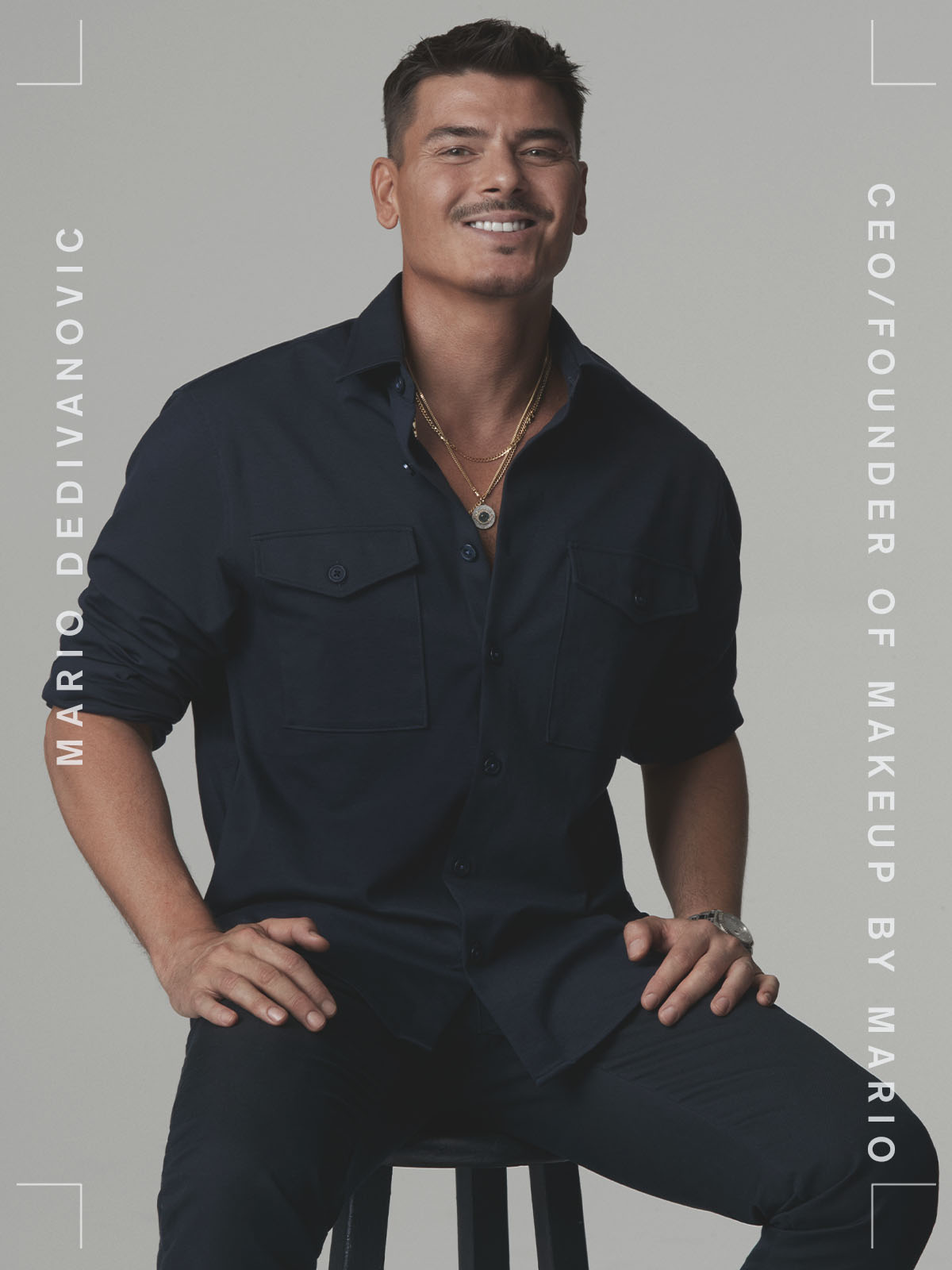
Welcome to our podcast, Who What Wear With Hillary Kerr. Think of it as your direct line to the designers, stylists, beauty experts, editors, and tastemakers who are shaping the fashion-and-beauty world. Subscribe to Who What Wear With Hillary Kerr on Apple Podcasts and Spotify.
Celebrity makeup artist Mario Dedivanovic had his eye on the beauty world from a young age.
"I always had an interest in beauty because I remember also when I was young watching my oldest sister, Vicky, apply lipstick before she went to school or she teased her hair," Dedivanovic said.
After landing a job at Sephora when he was 17, Dedivanovic found his true calling: makeup.
Since learning the ropes in retail, Dedivanovic has gone on to become one of the most influential makeup artists in the world, working with celebrities such as Kim Kardashian and Jennifer Lopez.
In 2020, Dedivanovic launched his beauty brand, Makeup by Mario.
For Wholesale Replica Bag episode of Who What Wear With Hillary Kerr, Dedivanovic shares his aha moment at Sephora, his best concealer tip, and so much more.
For excerpts from their conversation, scroll below.
For anyone who's listening who might not have an encyclopedic knowledge of your career as I do, can you give a little bit of context to your origin story and how you first fell in love with makeup?
I always had an interest growing up. I was born and raised in the Bronx, a child of Albanian immigrant parents from Montenegro. Super old-school, super old-fashioned.
A super kind of also suppressed childhood, because I always knew I was slightly different and interested in things like beauty and supermodels and MTV and pop stars.
I always kept that quiet and to myself. I always had an interest in beauty, because I remember also when I was young watching my oldest sister, Vicky, apply lipstick before she went to school or she teased her hair.
I was always fascinated by the transformation aspect of that. There was something there that inspired me.
After high school, I went to Manhattan to look for a job. I stumbled across Sephora—which was the Rockefeller Center Sephora—and it was three stories.
Sephora was a new concept in the United States at the time. I remember walking in, and my mom was with me.
She immediately took me through the revolving doors and spun me back outside. She's like, "No, no. This is not for you this place."
I think she saw these guys that had makeup on, and she was like, "Oh, no, no, no."
Long story short, I eventually got hired. I wound up even calling the headquarters in France to ask why wasn't being hired. So I had an interview, and I got the job.
I used to stand by the door and hold baskets and say, "Welcome to Sephora. Welcome to Sephora." All day.
This woman asked me, there was this gondola full of hundreds of lipsticks, and she was overwhelmed. She asked me to help her choose a lipstick, and for a second, I was like, "Oh my god, what am I going to do?"
Because I want to do it, but I'm not supposed to, because it's not my job.
I specifically remember the color. It was this reddish, almost Benetint-y kind of shade. I gave it to her, and she tried it on.
She was just like, "Oh." She goes, "I love this. Thank you so much." That little experience, it was an epiphany.
It somehow gave me this confidence that I had never felt before in my life.
That's it. This is what I want to do. This is my world. This is what I want to work toward.
That unlocking moment is so incredible. At that point, did you feel like you had an understanding of product, of color, of what would work for someone or what wouldn't because of your sisters, because of your own research? Where were you in your education journey?
I think I naturally had an instinct of what was tasteful, what was not, what looked good, what was flattering, and what was not.
Even as a child, I remember watching my mom or my sister get dressed, or I remember studying the music videos and the supermodels and all that stuff, and so I was very aware of a sculpted silhouette.
I was very aware of more tailored versus untailored. That was all in me. I just suppressed it my whole life.
Now, here I am, for the first time with this newfound freedom in the sense that I was out of the Bronx; my family wasn't near me.
Now I can actually entertain this. Now I can actually study this. I became obsessed with it.
I wanted to be friends with all of the makeup people at the store because they were the cool kids. And I did. I became friends with everyone.
I started just diving into it, and the store manager was really supportive because I was a fragrance consultant, and so we'd get gratis from the brands.
I asked her privately, "Hey, is it okay if I traded the fragrance and take some makeup?" This is how I began to build my first kit.
Secretly, I used to put it in a Nike shoebox at home so that no one in my family would find it.
I remember I did my first makeup application in the store. Then I got my first two clients booked.
It was for $25, and I thought I was literally the king of New York because I just booked my first clients, and they were these two cabaret singers that I met at Sephora, and they paid me $25 cash, and I took my shoebox as my makeup kit to the cabaret show.
It's incredible just how it all happened. I was really serious about it at the same time, and I would go to the library.
I would research. I would study endlessly to the point that I knew at that time every Allure magazine, every Vogue magazine.
I knew who did the makeup, who did the hair, who did the styling, who photographed it. That's how well I knew it.
Thankfully, I was in the epicenter of it all. I was in the middle of New York City because I was able then to eventually go and assist really big makeup artists and be on these massive fashion and beauty campaigns at 18,19, 20.
It's really priceless that experience that I had in those early years.
I know you love all the products. They're all your babies, but there's always some that we love just a little bit differently. I'm wondering if there were any that you were particularly excited about getting to market or particularly proud of and why?
Anything complexion for me is what I get extremely excited about. It's the most powerful type of product in the sense that it has a greater effect on people and how they feel, right?
Obviously, the foundation concealer I'm very proud of, but also the Transforming Skin Enhancer is one that I can't tell you how many times people come up to me on the street and they pull it out of their bag or they say, "This has changed my life," or "This product is my ride-or-die." Because it's kind of that for me, too.
I want to talk about concealer. Your SurrealSkin Awakening Concealer, to be specific. You mentioned that this was your most-requested product yet. I'm curious about what the process was like to develop it. I'm also wondering what your best concealer tip or trick would be.
There are differences with concealer. There's the social media concealer—which is for the hot lights and all that—and the celebrity red carpet concealer and the glam concealer.
Then there's the real-life concealer, which is how people do it every day at home and how I do it if I'm doing it.
First of all, I started to test different formulas from the very beginning. I knew we couldn't afford to do foundation or concealer in the beginning, and we had to wait a long time.
I wanted to have it ready so that when we could afford it, we could go. I tested lots and lots of different formulas. The SurrealSkin Foundation was more luminous. It gripped beautifully on the skin. It could allow your natural skin to shine through. Concealer is a more full-coverage product.
One of the things I really wanted to do was like, "Okay, how can I help what I'm seeing out there?"
So I'm seeing people using a ton of concealer, like layers of it—thick—and then I'm seeing a ton of powder going on top.
So I'm like, again, it's going to work for social media. But when you step outside in the sunlight, I don't care who you are or how skilled you are, it doesn't look right.
That's when I started talking with my team and explaining to them what I'm looking for.
Within that formula, we had the self-setting; we have the caffeine for tightening.
When I started to develop the formula and perfect it, I wanted coverage, but where you didn't have to put a thick layer on.
If I'm doing my own makeup at home, the way that I use that concealer is I'll put the tiniest bit of that concealer.
Then I just blend it in like this, and then I don't have to set it, because setting it is then adding this other layer of texture.
That's where things usually start to become visible. Then if I have breakouts, same thing, I wanted a concealer that wasn't too oily, that's not going to 1) make me break out more and that's not 2) going to slide over the face or require a lot of powder to hold it.
That's kind of how that concealer was born.
This interview has been edited and condensed for clarity. Next, read our interview with Marisa Meltzer.
